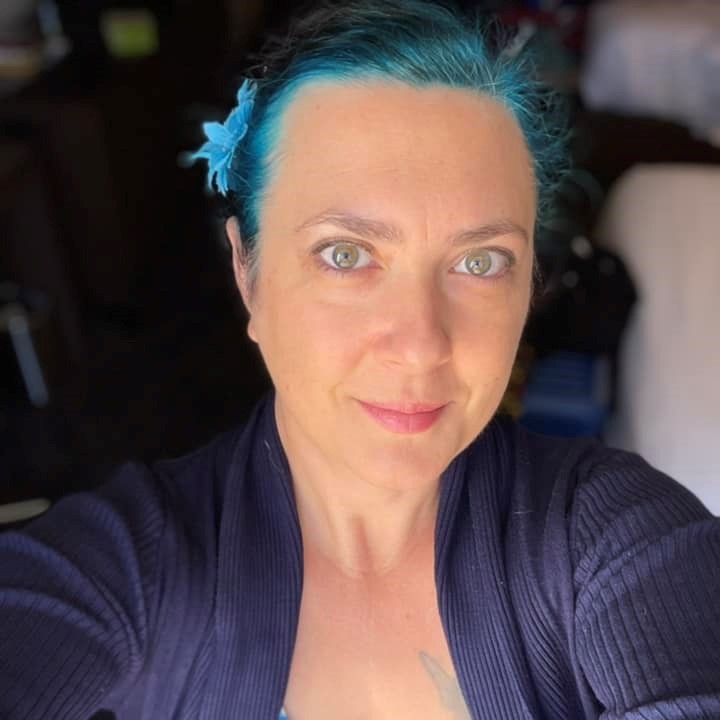#ownvoices
Queer Colorado speculative fiction authors you need to know
Queer Colorado speculative fiction authors you need to know
Colorado has a rich literary landscape, with an abundance of published authors writing in every genre imaginable. Speculative fiction, which includes fantasy, science fiction and horror, is an especially thriving genre. It’s also one of the most diverse in terms of the LGBTQIA+ community, moving forward hand-in-hand with Young Adult fiction toward a more accepting world. The fantastical and imaginative stories in speculative fiction create a welcoming atmosphere that embraces people in the margins, writers and readers alike. In a time where the importance of hashtag ‘ownvoices’ and representation have been shown to matter in a way that can save lives, these Colorado authors are making it happen by being open and reaching out through their books in meaningful ways.
David R. Slayton
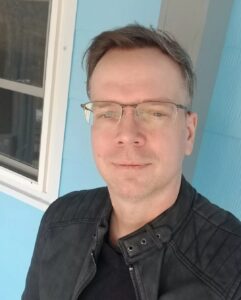
David R. Slayton
Born in rural Oklahoma, Slayton is the award-winning author of White Trash Warlock; Dark Moon, Shallow Sea; his upcoming Rogue Community College; and others in these series. As a kid he struggled to find fantasy fiction to read, and the books he could find didn’t provide the representation he yearned for. “People want representation. They want to see themselves included, and I think it’s such a beautiful thing when you get to point at a book or a film and say, ‘Look, they’re like me!’” Now a Denver resident, Slayton’s been able to provide the types of stories to his readers that he couldn’t find in his childhood. “There have been some incredible moments on my journey to publication, but none matter as much as hearing from readers who grew up like I did: rural, gay and poor. Knowing that my books are out there, reaching them, means more to me than anything else I’ve accomplished.” Slayton points out that “speculative fiction writers are dreamers” exploring the human condition. His work has given license to others to explore their own dreams and to embrace themselves as they are.
Angela Sylvaine
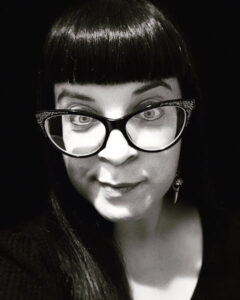
Angela Sylvaine
Sylvaine is a Fort Collins author known as “the cheerful goth” who writes speculative fiction and poetry. Her books include Frost Bite, The Dead Spot: Stories of Lost Girl and the upcoming Chopping Spree, a novella. She has also had over 50 short stories and poems published in various media, including The No Sleep Podcast. She pointed out that representation doesn’t just impact those finally being represented, but all readers. “Reading about stories other than your own is the essence of good fiction and storytelling, and it’s what ultimately helps readers develop empathy and understanding for others.” Her novel Frost Bite is a quirky horror comedy but she writes a wide range of horror, as evidenced in her collection.
Carina Bissett
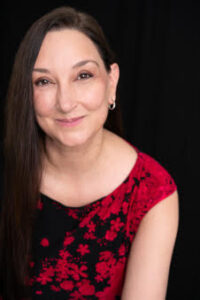
Carina Bissett
Colorado Springs author Bissett creates dark and fabulist pieces in poetry and fiction and has written award-winning nonfiction as well. Her poetry has been nominated for multiple awards, including the Pushcart Prize. Dead Girl, Driving and Other Devastations, her debut horror collection, was released this year, and she was also co-editor of the award-winning Shadow Atlas: Dark Landscapes of the Americas. In addition, Bissett teaches workshops that turn out authors whose work gets picked up in an array of respected publications. In addressing the many possibilities of speculative fiction, she said, “The very word ‘speculative’ suggests that we can look into futures where possibilities—the permutations of what is possible — can become a reality. What is more magical than that? Speculative fiction—the umbrella of spectrums that fall beneath this generous label—creates a space where you and I and countless others can find safety in self-expression.” Bissett has written several successful pieces on women in horror that have made a splash recently, so more awards may be on the horizon.
James Persichetti
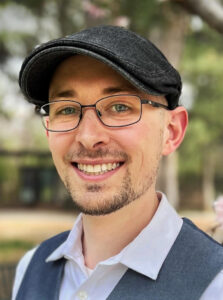
James Perischetti
Persichetti has long been a freelance editor, but the Denver author can now count author of a graphic novel as a point of pride. His debut graphic novel, A Tale of Two Nights, was inspired by his study of Arthurian legends while pursuing an English degree. Perischetti celebrates the explosion of LGBTQIA+ fiction and the fact that it’s widely displayed on store shelves now. “The stories we tell ourselves are a reflection of how we live our lives and how we want to mold the world around us. I believe the only way to normalize something is to treat it like it’s normal. As queer fiction grows, it treats queer/LGBTQIA+ as normal, which is the first step in normalizing queerness in our own society. Queer representation tells the world that we matter.” A Tale of Two Nights is a reimagining of the stories of Lancelot and Tristan, set alongside a sweet romance.
Jessica Hopkins
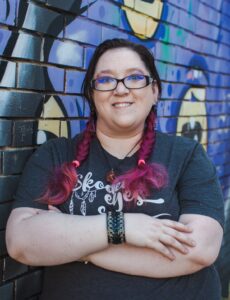
Christina Hopkins
Hopkins is an Indigenous author—Cherokee and Myskoke—in Colorado Springs. A gamer and student with an already impressive school resume that includes a master’s degree from the University of Denver, her debut urban fantasy novel about a witch, Born to Be Magic, is out now, soon to be followed by her upcoming books, Sky Marked, One Red Hand and Don’t Fear the Demon. She passionately stands for marginalized people through her writing and actions. “When you do not see yourself reflected in your culture’s art—and Indigenous people as well as queer people ARE part of the dominant culture as well as participants in our own culture—there is damage. You feel invisible, not important.” Like Slayton, Hopkins spoke of finally being able to see positive representation and seeing herself in it, and of the great strides this has brought, especially in speculative fiction where queer characters can be heroes or everyday people who are an accepted part of the culture. Most importantly, it brings hope to readers during hard times.
Christina Bergling
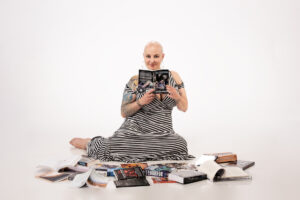
Christina Bergling
Bergling’s focus is on horror, with over 20 short stories and five novels out. Her novels include Followers, The Rest Will Come and Screechers, co-written with Kevin J. Kennedy. With a day job in IT, writing isn’t this Colorado Springs author’s only artistic outlet; she performs as a belly dancer as well. When discussing the evolution of speculative and queer fiction and its impact on empathy, she addressed its power in times of need: “I think speculative fiction really thrives when the current world climate is particularly dark or upsetting. We may want an escape from where we are, or we may want to deal with it indirectly. Speculative fiction lets us take that sidestep out of reality, whether it’s for entertainment or passive processing, either way making it easier to deal with current events.” One of her essays, “How to Kill Yourself Slowly,” has likely saved lives, according to many readers.
E.S. Argentum
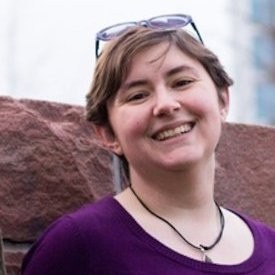
E.S. Argentum
Denver-based author Argentum has co-written a series under the unified pseudonym O.E. Tearmann, as well as their own fiction. Their solo work is primarily sweetly romantic LGBTQIA+ science fiction and fantasy, while their co-written series—Aces High, Jokers Wild—is more likely to appeal to Firefly fans, especially those who enjoy dystopias. The series is now eight books long, with short stories set in that world as well. Argentum discussed an important facet of queer speculative fiction as compared to queer works in other genres: “… the thing I love about representation in spec fic is that it often doesn’t center on the character’s identity the way a lot of these contemporary [Young Adult novels] do. When you have queer representation in a fantasy or sci-fi, it’s more often a facet of the character that helps round them out, instead of a major part of their plot.” They feel both are important representations, but Argentum tries to embrace the strength of character as an individual in their works. The most recent Aces High, Jokers Wild release is The Games We’ve Played.
Lyndsay King-Miller
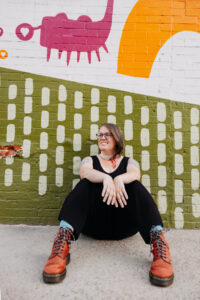
Lyndsay King-Miller
King-Miller is a multi-faceted Denver author, writing in several different genres, and even had a popular advice column titled “Ask a Queer Chick,” which ultimately spawned a book. Her horror novel, The Z Word, a tale of zombies and found family, released this spring. She’s had horror short stories published previously and her articles have appeared in major periodicals such as Glamour and Vice. Moreover, she’s used her MFA in Writing & Poetics to teach middle schoolers up through college and she founded the Tucson Poetry Slam.
A fan of all things fantastical and frightening, Shannon Lawrence writes primarily horror and fantasy. Her short stories can be found in over 60 anthologies and magazines in addition to her horror short story collections. Her nonfiction title, The Business of Short Stories, and debut urban fantasy novel, Myth Stalker: Wendigo Nights, are available now. You can also find her as a co-host of the podcast Mysteries, Monsters, & Mayhem. When she's not writing, she's hiking through the wilds of Colorado and photographing her magnificent surroundings, where, coincidentally, there's always a place to hide a body or birth a monster. Find her at www.thewarriormuse.com.
Click here for more from Shannon Lawrence.
